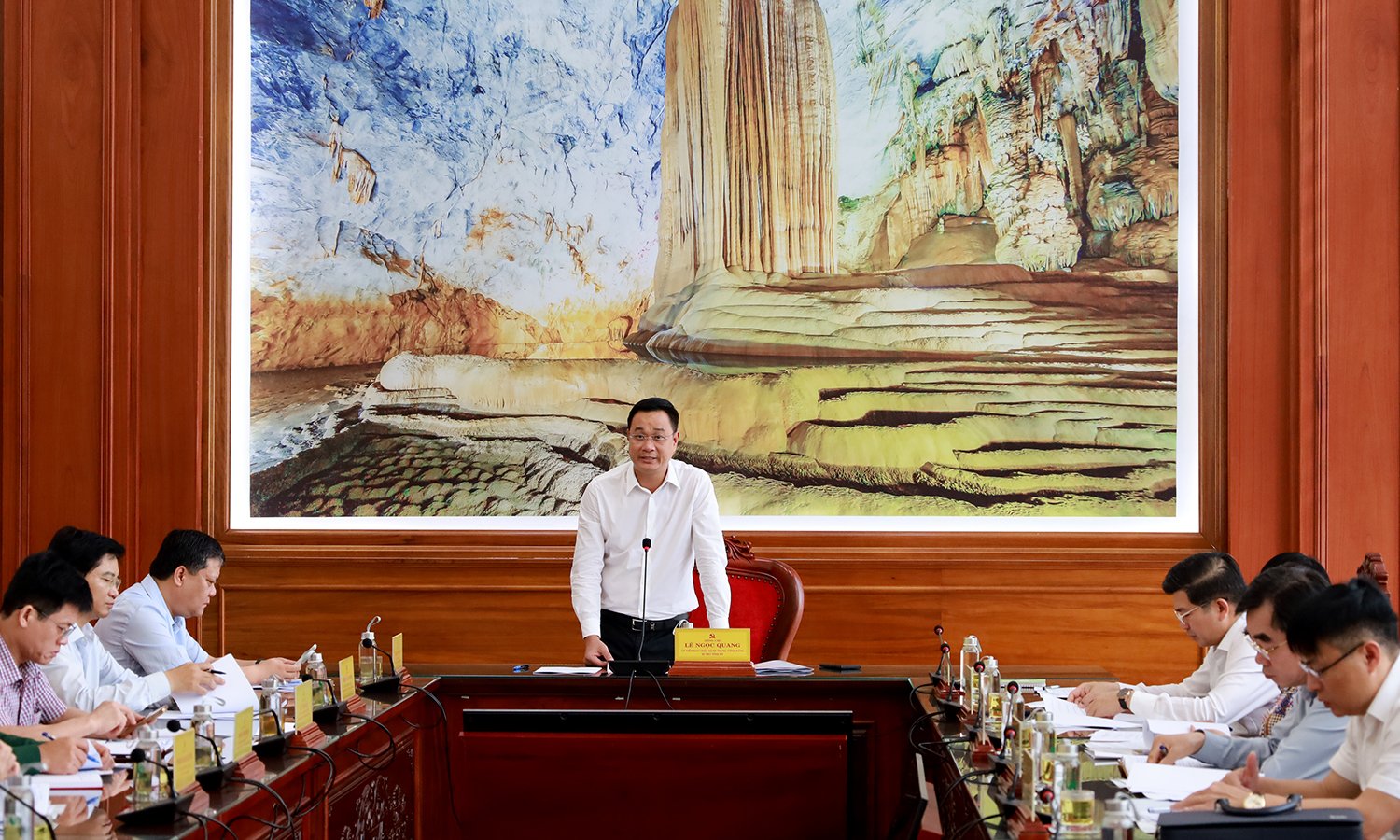
Decentralization and delegation of power are both inevitable trends and key issues in national governance to enhance the effectiveness and efficiency of management as well as the effective allocation and use of resources; reduce pressure on the Central Government, and enhance the responsibility and accountability of local governments. Realizing that, our Party advocates strengthening research and defining the functions and responsibilities of the Central Government and the autonomy of localities in administration and management. The document of the 13th National Party Congress affirms: "Promoting decentralization and delegation of power, clearly defining the responsibilities between the Government and ministries and branches; between the Government, ministries and branches and local governments; thoroughly overcoming overlapping functions, tasks and powers; ensuring unified state management; at the same time, promoting the proactive, creative role and sense of responsibility of each level and each branch" (1 ) .
Resolution No. 18-NQ/TW, dated October 25, 2017, the 6th Central Conference of the 12th tenure, on "Some issues on continuing to innovate and reorganize the apparatus of the political system to be streamlined and operate effectively and efficiently " advocates: "Implementing strong and reasonable decentralization and delegation of power between the Central and local levels, between superiors and subordinates, linking authority with responsibility; at the same time, building a mechanism to strictly control power by Party regulations and State laws, ensuring democracy, publicity, transparency, promoting accountability and strengthening inspection and supervision of implementation. Encouraging dynamism, creativity and promoting the positivity and proactiveness of all levels, sectors and localities in building and perfecting the organization, streamlining the apparatus and reducing staff".
The issue of decentralization and delegation has also been institutionalized and regulated in the 2013 Constitution; the 2015 Law on Organization of the Government (amended and supplemented in 2019); the 2015 Law on Organization of Local Government (amended and supplemented in 2019); Party regulations, Government resolutions, a number of specialized laws and other legal documents have specified regulations on decentralization and delegation of power according to each sector and field...
Practice of decentralization and delegation of power in the political system of Quang Binh province
Quang Binh province has promptly concretized the resolutions, directives, conclusions and regulations of the Central Government to deploy, assign, decentralize and delegate authority effectively throughout the Provincial Party Committee. With many creative and practical solutions and methods, suitable to the specific conditions and situations of the province; implemented comprehensively and synchronously, with many outstanding results, specifically:
Firstly, the Provincial Party Standing Committee has focused on concretizing the regulations of the Central Government, promulgating regulations on the functions, tasks, and working relationships of the Provincial Party Committee and the Provincial Party Standing Committee; regulations on decentralization of management and appointment, introduction of candidates; rotation of leaders and managers; staff planning; annual assessment and classification; responsibilities and handling of responsibilities of heads and deputy heads; exemplary responsibilities of cadres and party members; promulgating a list of titles, leadership positions and equivalent positions of the provincial political system... On that basis, localities and units continue to concretize, decentralize, and specifically delegate power to organizations and individuals to ensure compliance with regulations. Basically, the system of regulations and rules has clearly defined the principles, authority, and responsibilities of the leadership collective, heads, advisory bodies, and relevant agencies in personnel work; Assign and decentralize to Party committees and organizations at all levels to manage and directly decide on a number of stages and staff positions; create a legal basis for agencies, units and localities to implement.
The Provincial Party Standing Committee develops projects and issues regulations on the functions, tasks, powers, and organizational structure of the committees and the Provincial Party Office ; implements decisions on the functions, tasks, powers, and organizational structure of specialized agencies to advise and assist the district Party Committee, district Party Committee, and city Party Committee directly under the provincial Party Committee and city Party Committee (2 ) ; perfects the organization and structure and issues regulations on the functions, tasks, organizational structure, and operating mechanism of the Provincial Cadre Health Care and Protection Committee . Leads and directs the Party Committee of the Provincial People's Committee to organize the apparatus and streamline the payroll, arrange leaders in specialized agencies; communes, wards, villages, and residential groups subject to consolidation and merger; rearranges public service units in the province; At the same time, deploy the implementation of the Resolution of the National Assembly Standing Committee (term XIV, XV) on the arrangement of commune-level administrative units in the province to ensure compliance with regulations.
At the same time, issue action programs, regulations, and projects on innovation in personnel work in the direction of decentralization and delegation of power more clearly and specifically to organizations and individuals in personnel work, linking authority with responsibility; review and perfect the functions, tasks, powers, and working relationships between organizations in the political system, overcoming overlapping and duplication. In particular, right from the beginning of the term, the Provincial Party Executive Committee issued 4 action programs, of which the Action Program on human resource development and improving the quality of cadres for the 2020-2025 term is one of the 4 breakthroughs of the province. On that basis, concretize into projects, plans, regulations, and guidelines to improve the quality of cadres, especially leaders and managers at all levels, with high determination, new, creative and breakthrough ways of doing things; The focus is on 3 projects on personnel work, piloting a number of new and innovative models in personnel work (3 ) ; building a mechanism to strictly control power by Party regulations and State laws, promoting accountability and strengthening inspection and supervision... creating an important mark right from the beginning of the term, contributing to positive changes in all aspects of Party building, apparatus organization and personnel of the provincial political system.
In addition, the province has also issued a plan to continue innovating the Party's leadership and governance methods over the political system in the new period (4 ) ; in which, focusing on leading and directing the innovation of leadership methods of Party committees and Party organizations at the grassroots level, focusing on improving the quality of building and perfecting the working regulations of Party committees and Party organizations at the grassroots level (5 ) ; issuing a decision on model working regulations of Party committees of communes, wards and towns as a legal basis for Party committees of communes, wards and towns to build regulations in accordance with regulations.
Second, regarding the organization of the state administrative apparatus, current legal regulations ensure conformity with local conditions. The functions and tasks between central agencies and local government agencies in the organization of the administrative apparatus have been clearly defined. The functions, tasks and powers of specialized agencies and provincial and district-level People's Committees have been clearly and appropriately defined, and the tasks that specialized agencies decide and are responsible for have been defined. Identifying specialized management agencies in a multi-sectoral and multi-field direction has created connectivity and unity in activities in the same sector, field or fields, minimizing the participation or coordination of many specialized agencies in the same sector or field.
At the same time, proactively promote decentralization and delegation of power in terms of institutions, mechanisms, finance, human resources and other necessary conditions of the province as well as decentralized agencies, units and localities. From there, create conditions for more effective mobilization and use of resources; in accordance with the conditions, management level and ability to receive decentralization and delegation of power of each agency, unit and locality. Along with that, the implementation of decentralization and delegation of power also shortens the process of handling administrative procedures by cutting unnecessary intermediate steps, clearly defining responsibilities between each agency; reducing costs, saving processing time of citizens and organizations when carrying out administrative procedures; improving the effectiveness and efficiency of State management and increasing the satisfaction of individuals and organizations with the service of administrative agencies in the area.
The organization of provincial-level specialized agencies has been arranged according to a unified model; at the same time, attention has been paid to the specific factors of the local geographical location, economy, and society to establish a number of specialized agencies on the basis of arranging and reorganizing specialized agencies suitable for fields such as foreign affairs, ethnic affairs, culture , sports and tourism , agriculture and environment, construction, etc.; meeting the requirements of multi-sectoral and multi-field management tasks, creating unity in handling work, coordination, and strengthening the role of direct leadership and management of the People's Committee at the same level and of the competent authority at the higher level. The Provincial People's Committee directs and implements the arrangement of the apparatus and streamlining of staff, arranging leadership staff in specialized agencies; communes, wards, villages, and residential groups subject to consolidation and merger; rearranging public service units in the province to ensure compliance with regulations (6 ) .
Regarding the management of cadres, civil servants and public employees, current legal documents have clearly defined the tasks and powers, authority and responsibility between the province and local authorities . Ensuring consistency and unity in the system of legal documents. In accordance with the management and operation capacity of each level and the conditions and capabilities of each locality. It is the legal basis for the Provincial People's Committee to regulate the responsibilities and powers at the local level, between local authorities in state management in the field of cadre, civil servant and public employee management in a reasonable and effective manner.
In general, the implementation of decentralization and delegation of power has created positive changes in innovation, organization and apparatus arrangement, improving the effectiveness and efficiency of the operations of agencies, units and organizations in the political system, associated with innovation in the Party's leadership methods, building a strong provincial political system. Decentralization and delegation of power have contributed to promoting the dynamism, creativity, autonomy and self-responsibility of the province and localities, exploiting and utilizing resources more effectively. At the same time, through the implementation of decentralization and delegation of power, it has contributed to ensuring the comprehensive leadership of the Party; more transparent management and operation of the government; the role of supervision and social criticism of the Fatherland Front and socio-political organizations has been better promoted; thereby, better serving the needs and interests of organizations, individuals and people in the province.
However, besides the achieved results, from the practice of Quang Binh province, the decentralization and delegation of power in the political system still has some of the following problems and shortcomings:
Firstly, at present, the system of legal documents on decentralization and delegation of power within the Party and in state administrative management is not yet synchronous, most of them are only general regulations, not specific, clear, and even some work and content are not thorough. In the Party's regulations, decentralization and delegation of power to the Standing Committee of the provincial Party Committee are prescribed for Party committees and Party organizations according to their authority, but there is a lack of specific guidance, leading to different understandings and approaches, and a lack of unity. For government levels, specialized laws have not yet clearly defined the scope of decentralization to local government levels, in many cases only stopping at decentralization to local government at the provincial level. Decentralization between the central government and local government is still heavily focused on transferring work from higher levels down, not transferring in proportion to the authority and necessary resources (organizational apparatus, human resources, finance, etc. ) for organizing the implementation of decentralization. Decentralization and delegation of power have not been linked to administrative procedure reform. There is still a control mechanism of the superiors through the forms of agreement, approval, consultation, permission... for issues that have been decentralized to the subordinates. For example, the working process of leaders and managers of the Fatherland Front, socio-political organizations; press agencies, inspection, and examination... Therefore, localities still do not have enough authority and necessary conditions to proactively carry out tasks that localities are capable of solving according to decentralization.
Second , decentralization and delegation of power are still uniform among localities, not taking into account the characteristics, features, number of party members in the population, rural areas, urban areas, islands and the characteristics of sectors, fields, conditions to ensure implementation and the leadership, direction, management and operation capacity of each level; some areas of decentralization are not strong and unclear. Accordingly, the potential, advantages, resources, initiative and creativity of localities, leadership groups and leaders at all levels have not been fully promoted.
Third , the issue of inspection, examination and control of the implementation of decentralization and delegation of powers is still not strict and not consistent with the actual situation of decentralization and delegation of powers; there are not enough sanctions for cases of non-strict implementation of regulations; publicity, transparency and accountability are still limited, the phenomenon of abuse of power and taking advantage of positions and powers by a number of cadres, civil servants and public employees is still slow to be pushed back...
Some tasks and solutions in the coming time
From July 1, 2025, Quang Binh province will be merged with Quang Tri province, named Quang Tri province. Quang Tri province (new) has a natural area of 12,700 km2 anda population of 1,870,845 people, with 78 commune-level administrative units, including 69 communes, 8 wards and 1 special zone. To continue to effectively carry out the task of decentralization and delegation of power, Quang Tri province (new) will focus on effectively implementing the following solutions:
Firstly , continue to review, amend, supplement and perfect Party regulations and State laws in the direction of promoting decentralization and delegation of power, clearly defining the responsibilities of the Central Government, the Government, ministries, branches and localities to ensure compliance with the spirit of the Resolution of the 13th National Party Congress, the Constitution, State laws and Resolution No. 56-NQ/TW, dated November 25, 2024 , of the 13th Party Central Committee, ensuring rationality and feasibility in practice. Accordingly, new documents need to clarify the terms decentralization and delegation of power, principles, mechanisms of guarantee, and responsibilities of relevant entities in implementing decentralization and delegation of power; contribute to streamlining the apparatus, streamlining staff, improving effectiveness, efficiency and operational efficiency, overcoming overlapping and duplication of functions and tasks between agencies, promoting proactiveness, creativity, and upholding the sense of responsibility of each level and each sector.
Second, focus on building a system of unified and scientific decentralization and delegation policies, creating favorable conditions for the central government in terms of management, while ensuring effectiveness for all localities regardless of differences in scale, resources, etc.; enhance the ability to adjust the level of autonomy in accordance with the capacity of the locality and the lower level. In addition, it is necessary to develop specific criteria to determine which localities can or should enjoy special mechanisms; avoid the situation where many localities apply for special mechanisms or special mechanisms become common, causing unfairness in implementing the mechanism of priority development policies.
Third, promote the initiative, creativity, autonomy and self-responsibility of localities, focusing on conditions for staff organization, finance, budget and resources to carry out decentralized tasks and powers. In decentralization, it is necessary to pay attention to specific factors such as historical, cultural, economic and political conditions of each locality to prescribe appropriate decentralization and delegation of powers to promote effectiveness and efficiency in leadership, direction and state management and promote the potentials and advantages of each locality in Party building and political system building, socio-economic development.
Fourth, continue to streamline the organizational apparatus associated with streamlining the payroll, improving the effectiveness, efficiency, and operational efficiency of the political system. Complete and arrange the organizational apparatus , streamline it according to the 2-level local government organization model, associated with perfecting the functions, tasks, powers, responsibilities , and working relationships of each organization to overcome duplication , overlap , and ineffective operations . Review, adjust, and amend the list of job positions, guide the development of a competency framework, and specific job position descriptions to serve as a basis for determining the payroll of the political system ; Early review and amend appropriate policies to facilitate streamlining the payroll , restructuring and improving the quality of the staff , civil servants and public employees in the current "revolution" of arranging and perfecting the organizational apparatus and streamlining the payroll.
Fifth , strengthen inspection, examination and supervision of the implementation of decentralized and delegated tasks; promptly grasp difficulties and obstacles and handle violations in the process of organization and implementation. Strengthen decentralization, delegation of authority, individualization of responsibility along with inspection and supervision to overcome the situation of "4 no's": 1 - not thinking of what to do; 2 - superiors point out but do not do, slowing down progress; 3 - not or slow to coordinate with other agencies to do; 4 - implementation without inspection, supervision, not grasping progress to lead, direct and urge. Once there is a consensus on theory, perfecting institutions and laws in decentralization and delegation of authority, all acts of irresponsibility or abuse of power for any motive or purpose must be investigated, verified and handled, especially the head who does not perform or does not perform according to regulations.
Sixth , build , perfect and implement a healthy , open , transparent and democratic competition mechanism in the appointment and promotion of officials and recruitment of civil servants and public employees to attract truly virtuous and talented people to work in organizations of the political system . Promote the development of digital government, improve the investment and business environment, especially improve provincial competitiveness indexes (PCI, Par Index, PaPi, Sipas...). Effective application of advanced and modern technology and science will ensure transparency of information on the organization and operation of local governments at all levels. Accordingly, the implementation of responsibilities and powers of each agency, cadre and civil servant of the local government is public and transparent, encouraging the participation of people, businesses and social organizations, and having an effective monitoring mechanism for government activities.
Decentralization and delegation of power to localities have become an urgent requirement in the exercise of power in each country; especially for our country, in the time of preparing conditions to enter a new era - the era of national development. With the motto "locality decides, locality acts, locality takes responsibility", the Central Government, the Government and the National Assembly only play the role of creating, strengthening institutional perfection and inspecting, supervising and implementing strong decentralization and delegation of power to localities; Cut down and simplify administrative procedures, do not allow responsibilities to be passed around, create a "request - grant" mechanism... Strictly implement the direction of General Secretary To Lam: "one agency performs many tasks, one task is assigned to only one agency to preside over and take primary responsibility; thoroughly overcome the overlapping of functions and tasks, division of areas and fields; ... resolutely eliminate intermediary organizations; reform of the apparatus organization must be associated with thoroughly grasping and effectively implementing policies on innovation of the Party's leadership methods, strong decentralization and delegation of power to localities, anti-waste, national digital transformation, socialization of public services..." (7 ) . In order for the promotion of decentralization and delegation of power to continue to be effectively implemented, this issue needs to be fully and in-depth invested in research to find appropriate and feasible solutions to promote the effectiveness of the organization and operation of the entire political system in the coming time./.
-------------------------
(1) Documents of the 13th National Congress of Delegates, National Political Publishing House Truth, Hanoi, 2021, vol. I, p. 177
(2) Regulation No. 137-QD/TW, dated December 1, 2023, of the Secretariat, "On the functions, tasks, powers, and organizational structure of specialized agencies advising and assisting provincial and municipal Party Committees directly under the Central Committee"; Decision No. 46-QD/TW, dated December 2, 2021, of the Secretariat, "On the functions, tasks, powers, and organizational structure of specialized agencies advising and assisting district, county, and municipal Party Committees directly under provincial and municipal Party Committees"
(3) Project No. 01-DA/TU, dated March 12, 2021, on "Improving the team of leaders and managers at the department, branch and local levels associated with creating a source of female and young officials under the management of the Provincial Party Committee Standing Committee for the period 2021 - 2025"; Project No. 02-DA/TU, dated March 12, 2021, on "Innovating a number of steps in the process of appointing and introducing candidates for positions under the management of the Provincial Party Committee Standing Committee" and Project No. 03-DA/TU, dated May 26, 2021, on "Training and fostering leaders and managers for the term 2020 - 2025"
(4) Plan No. 94-KH/TU, dated January 27, 2023, of the Provincial Party Standing Committee, "On continuing to innovate the Party's leadership and governance methods over the political system in the new period"
(5) Decision No. 959-QD/TU, dated January 27, 2023, of the Provincial Party Standing Committee, on model working regulations of Party committees of communes, wards and towns"
(6) In the 2019 - 2021 period, the province has arranged 17 units into 8 commune-level administrative units. In the 2023 - 2025 period, 11 units have been arranged into 5 commune-level administrative units (the whole province currently has 145 commune-level administrative units; including 122 communes, 15 wards and 8 towns). 8 branches and 1 administrative organization equivalent to a branch have been reduced; 28 departments and equivalents under the department, 30 departments and equivalents under the branches; 26 public service units
(7) Speech by General Secretary To Lam at the National Conference to disseminate and summarize the implementation of Resolution No. 18-NQ/TW, dated December 1, 2024
Source: https://tapchicongsan.org.vn/web/guest/thuc-tien-kinh-nghiem1/-/2018/1096902/phan-cap%2C-phan-quyen-trong-he-thong-chinh-tri----tu-thuc-tien-tinh-quang-binh.aspx



![[Photo] Prime Minister Pham Minh Chinh meets with representatives of outstanding teachers](https://vphoto.vietnam.vn/thumb/1200x675/vietnam/resource/IMAGE/2025/11/15/1763215934276_dsc-0578-jpg.webp)
![[Photo] General Secretary To Lam receives Vice President of Luxshare-ICT Group (China)](https://vphoto.vietnam.vn/thumb/1200x675/vietnam/resource/IMAGE/2025/11/15/1763211137119_a1-bnd-7809-8939-jpg.webp)

![[Photo] Panorama of the 2025 Community Action Awards Final Round](https://vphoto.vietnam.vn/thumb/1200x675/vietnam/resource/IMAGE/2025/11/15/1763206932975_chi-7868-jpg.webp)

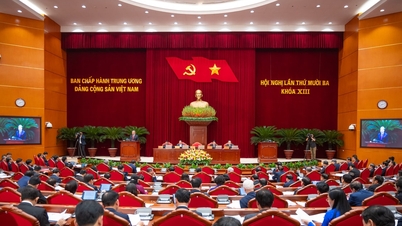

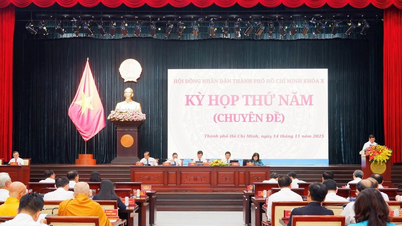

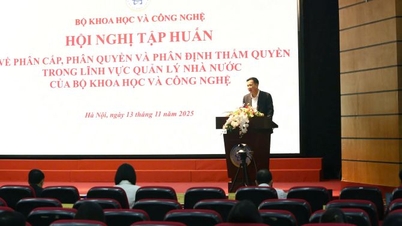



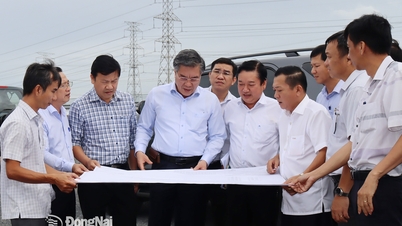


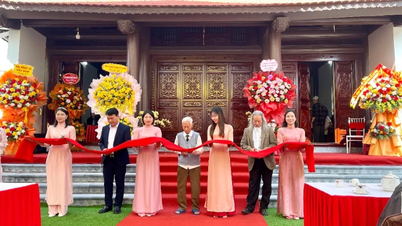
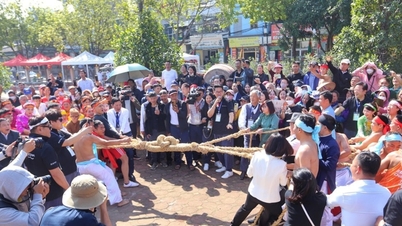



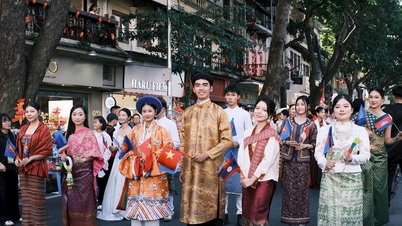
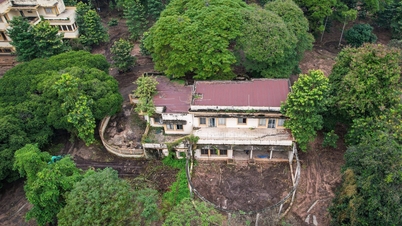

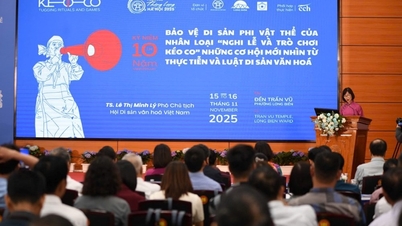








































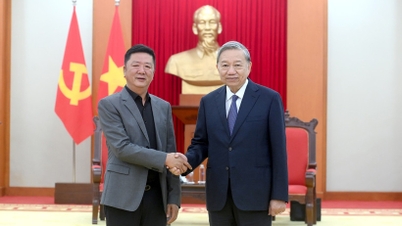
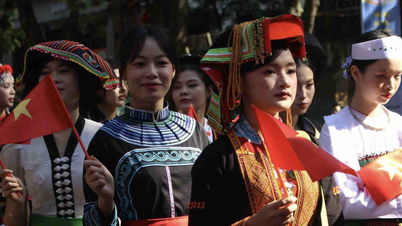

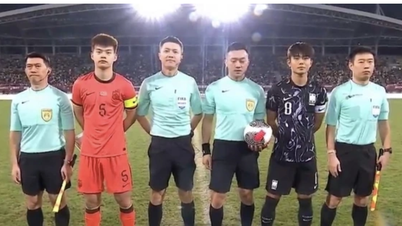


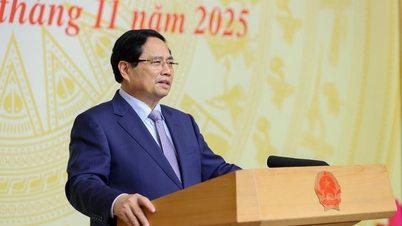
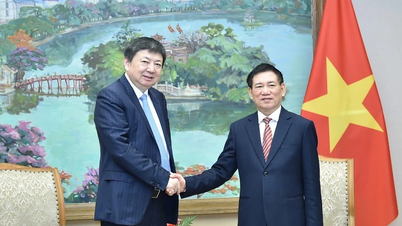





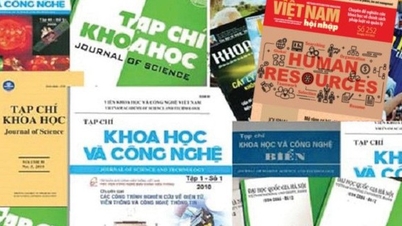
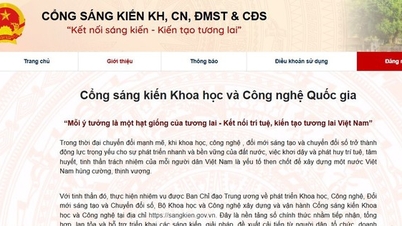


















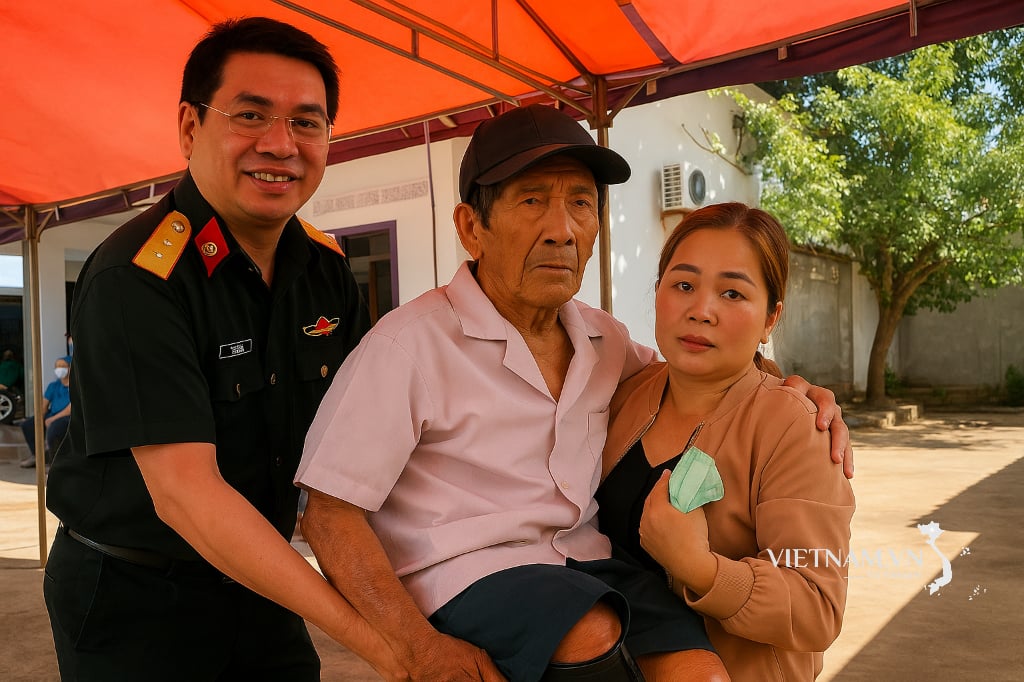



Comment (0)